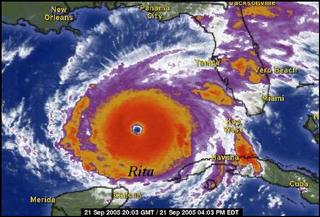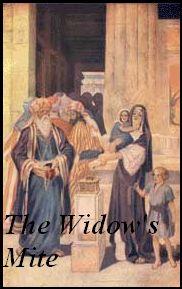 Isaiah 53:3 (New Living Translation)
Isaiah 53:3 (New Living Translation)3 “He was despised and rejected--a man of sorrows, acquainted with bitterest grief. We turned our backs on him and looked the other way when he went by. He was despised, and we did not care.”
I just finished my morning pilgrimage. It began about an hour and a half ago when I turned left and headed toward the “conservative” part of town. About three minutes into the walk I passed by Walnut School. Kids, kindergartners I think, were streaming into the building. Most of them had jackets on (it was about thirty-nine degrees) and were loaded down with backpacks that seemed bigger than the kids themselves. One boy was being escorted, hand and hand, by his mother, which didn’t please him at all. He was complaining bitterly about not being able to walk freely like most of the other kids. I’m not sure exactly how he did it, but he managed to break loose from her grip and ran toward some of the boys entering the school. He waved his arms in the air, triumphantly, and began to sing a song of joy. I couldn’t understand the lyrics, but sensed that in all likelihood they had something to do with freedom.
I turned north from there and passed the hospital and then made my way east again on Twelfth Street. Outside the Medicine Shop a man was loading an electric cart on to his van. I assumed it was headed for some senior citizen’s house to provide day to day inside transportation for its recipient. The thing that struck me as I passed by was that it was painted candy-apple red; sort of like the hot rods I remember when I was a kid. “Even flower children grow old,” I mused to myself as I made my way north toward Fifteenth Street.
I made a circle around Emporia’s “surgical hospital,” and picked up my pace. I think, subliminally, I was trying to stay ahead of the surgeon’s knife and the candy-apple red “get around.” I’m sixty-two now and I’ve come to appreciate the gift of mortality, but I still have plans that don’t include being hacked on by some surgeon or tooling around our local Wal-Mart in a souped up electric cart.
From there I walked toward C of E (College of Emporia) Park and made my way past several pear trees that had been planted years ago in memory of some loved on. Just beyond the trees I stopped in front of a bed of Irises which had been planted in three rows of about forty each. Each Iris had a nameplate in front of it. There was “Prairie Sunset” and “Pink Flirt.” There were some named for loved ones, including exotic names like Stella, which I’m sure Tennessee Williams himself would have been proud of. Toward the end of the bed there was one flower that struck a contemporary chord. “Mardi Gras Parade,” the template in front of it read. As I had when I passed the Medicine Shop I again mused. “Won’t be much of a “Fat Tuesday” this year.”
By the time I walked back south toward our main hospital I was aware of a deeper undercurrent. This morning’s little journey was less about me than it was about America’s young these days. The image that captivated me was the children wearing back packs and the little boy trying to shake free from his mother’s grasp. For some reason this morning the sight of kids going to school wasn’t as pleasant as it normally is for me. There was something that seemed less light to me in their gaits. I wondered if the back packs might be harbinger of days to come for these little innocents and that they were intuitively seeing the heaviness of the future already being laid upon their tiny shoulders.
I’m back home now. It’s getting close to noon, some two hours since my walk. But I can’t shake the feeling that came upon me as I made my way along the streets.
During our vacation we spent one night in Asheveille, North Carolina. We didn’t do a lot while we were there. In the late afternoon we walked around Biltmore Village. There we stopped in briefly and browsed around a few trendy shops, eventually buying a couple of bars of overpriced lavender smelling soap. In the evening we had dinner at a Red Lobster. It was there, while I was wolfing down my clams and scallops, that Nancy brought to my attention a young man who was sitting across from us. “Do you see that tattoo?” she whispered. “It looks like a spider web coming up his neck.” I glanced over, hoping that the young man hadn’t heard Nancy and that he wouldn’t notice me. I then turned back to Nancy, trying to be as nonchalant as I could. “Just another customer eating seafood,” I said.
“Did you see the tattoo?”
“I did indeed.”
“Do you ever wonder why so many kids are doing stuff like this?”
“I have.”
“Any answers?”
“Not really. It doesn’t make a lot of sense to me, but it must to them.”
I guess that somewhere in the recesses of my mind I was mulling Nancy’s questions over. While I was finishing the clams left on my plate, telling her how sweet they tasted, I also asked her to write down a title for me to explore more fully when I got home. “Acquainted With Grief,” I suggested. “I think a lot of these kids are becoming acquainted with grief.” Nancy wrote the words down and, until today, that was that.
For some reason, the sight of children weighed down with back packs this morning has brought back the memory of that young man in Asheville. What compelled him to do what he’d done to himself? And, what is it that makes so many of his peers feel the need to pierce every imaginable orifice in their young bodies? I mean, they’re piercing eyebrows, noses, lips, belly buttons, and nipples. It used to only be ears. And, they’re tattooing their necks, backs, stomachs, legs. Some are even tattooing the tops of their heads.
What’s going on? It seems that we may be witnessing the birth of a generation of flagellants whose heroes are svelte super-models who double as dope fiends, sluggers juiced on steroids, and rock stars who entertain their adoring flocks by “cutting themselves with broken glass.” How has it come to this?
When we lived in Memphis Nancy and I attended a small Vinyeard church about a block east of the University of Memphis. It was a small storefront church situated strategically in a “bad part of town.” Directly to the north of the church was Rocky’s Tattoo Parlor. To the south was a “Psychic Advisor.” While most respectable churches had long since abandoned the “Strip,” as the neighborhood was known, the Vineyeard was nestled in between the tattoo parlor and the psychic advisor, sort of like a rose among the thorns. It was, as I’ve later come to see, Divine placement.
I recall a conversation I had one Saturday afternoon with the psychic advisor. A group of us were cooking burgers and offering them to Gen X’ers as they passed by. The advisor must have smelled the food and came over for a visit. He was, surprisingly, a middle-aged man who in another setting could easily have been mistaken for a stock broker. He was that “ordinary.” I offered him a hamburger and he accepted. “Thanks,” he said. “I’m a bit hungry.” He took a bite or two and then tried to make some small talk. “It looks you and I are in the same business.” “What business is that?” I asked, knowing what his answer would be. “Souls,” he said. I thought for a moment and replied. “Actually, we’re direct competitors.”
The psychic flinched a bit when I answered. “That seems ominous. What’s your intent?”
“Well,” I said. “Business to business, our intent is to put you of business.”
In the months after that brief encounter the Vineyard had a great deal of success reclaiming souls that were once captives of the advisor. A lot young people who had once been desperate to peer into the future came through the doors of that little church on the “Strip” and learned to plant their feet firmly on the ground of today.
Along with the successes, though, came the failures. The psychic advisor did go out of business, but Rocky’s continued to flourish. We weren’t able to reach everyone who passed our way. Some came, expressed a bit of curiosity, and then moved on. Some felt that Rocky better expressed their worldview than did we.
And so it is that the faces flash by me now, young people with tattooed necks, pierced lips, and dark faces. I also see the faces of little boys and girls making their way to a schoolhouse door, wondering what the future holds for them. And I wonder how it’s all come to where it is now.
What’s the message they’re trying to send us? What’s the root answer to Nancy’s question? All I can posit in my mind is that they’ve become acquainted with grief; they’re caught in its grip. But how can that be? This is the richest generation of young people who’ve ever lived. We’ve given them everything we possibly can. We’ve given them sports cars and college scholarships. We’ve given them 20x20 rooms in five thousand square foot houses. We’ve given them Blackberrys and laptops, Gameboys and MP3 players, cell phones with cameras and money that seems to be loading down their wallets and purses. We’ve given them everything they’ve asked for and more and yet they still don’t seem happy. You pass them on the streets when they come of age and try to say hello to them and all you get is either a blank stare or nothing at all.
“What’s wrong” I ask myself. It’s really a foolish question, because I know the answer. Not only have we given them the stuff that dreams are made of, but we’ve also given them “uppers” to keep them awake all day and “downers” to put them to sleep at night. Not only have we given them big rooms in big houses, we’ve also given them designer drugs like Ritalin so that we can avoid interacting with them. We’ve given them unlimited freedom, sent them on their way, and we’re now paying the heavy price for the neglect.
What have they been looking for all this time? Love, I think. And, we’ve betrayed them by giving them anything but. It’s no wonder they’re piercing themselves and subjecting themselves to all the pain. They’re crying out for a conversation or counsel and we’re buying them off with Blackberrys and laptops. We’ve given them everything but what they really need.
Las night in our men’s group we watched a video done by Edwin Louis Cole. It was all about the Cross. One of the things that struck me very powerfully as I watched and listened was what Cole had to say about the core meaning of the Cross. “The Cross,” he said, “is the place we come to stay. It’s not the place we visit from time to time.” “And,” he said, “it’s the place where we die to our own instincts for self preservation.”
I see the painted faces, the pierced lips pass by my mind’s eye now and I wonder whether the toys given are the self preservation mechanisms adults have invented, means developed in the sophistication of the sixties to fend off death to the self indulgence of the age they brought on.
I think there’s only one hope left if we are to recapture this lost generation. We need to plunge into the valley of grief with them and pull them out. Long before He was born, it was said of Jesus that he was going to be a man of sorrows and acquainted with grief. He came, lived, and in the end He bore a cross. Now, for a generation that has plunged into that valley, we, as those who have embraced Him, must also plunge, to be acquainted with the grief, the alienation, and the despair they feel. It’s a cross we must bear. There is no other way.







